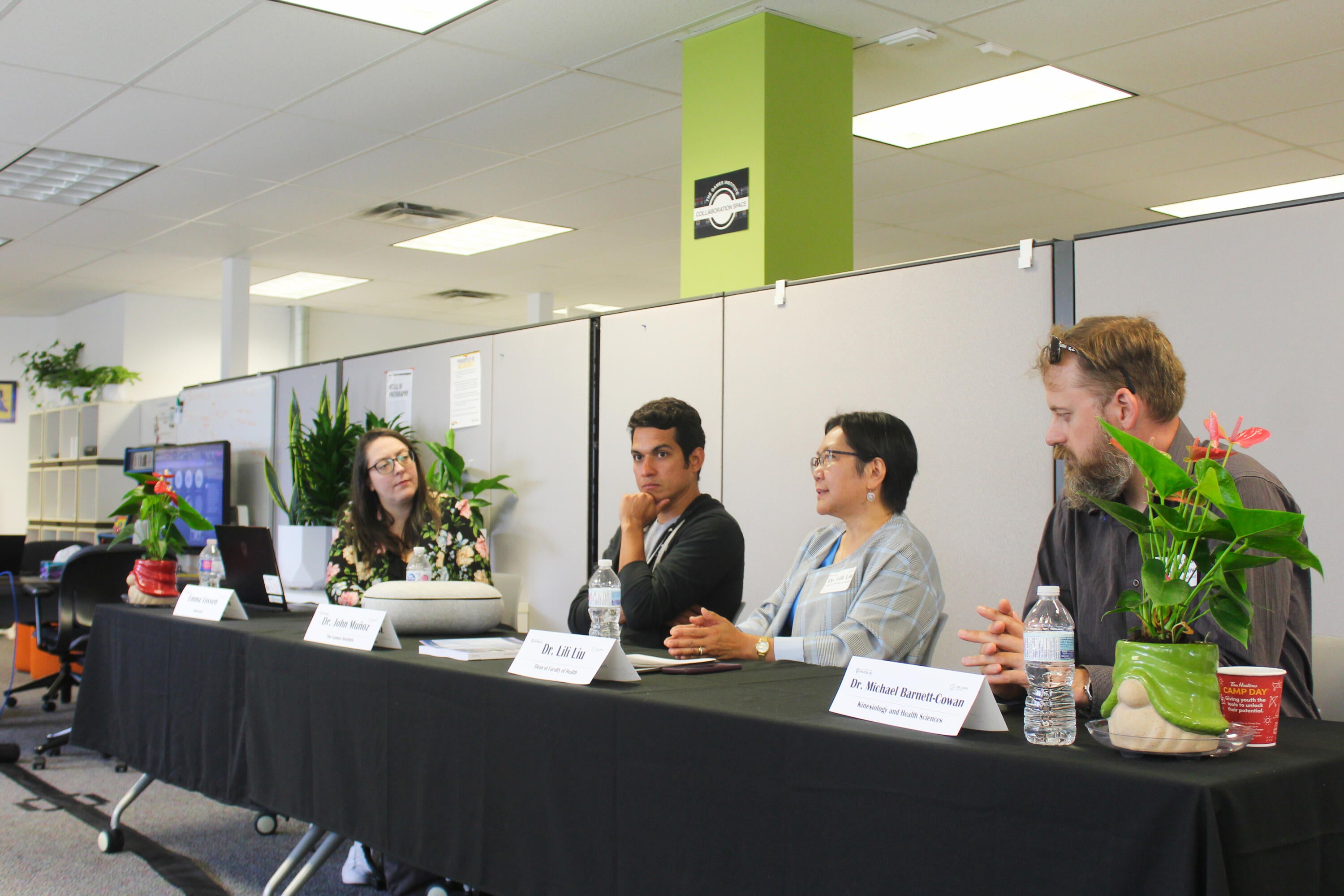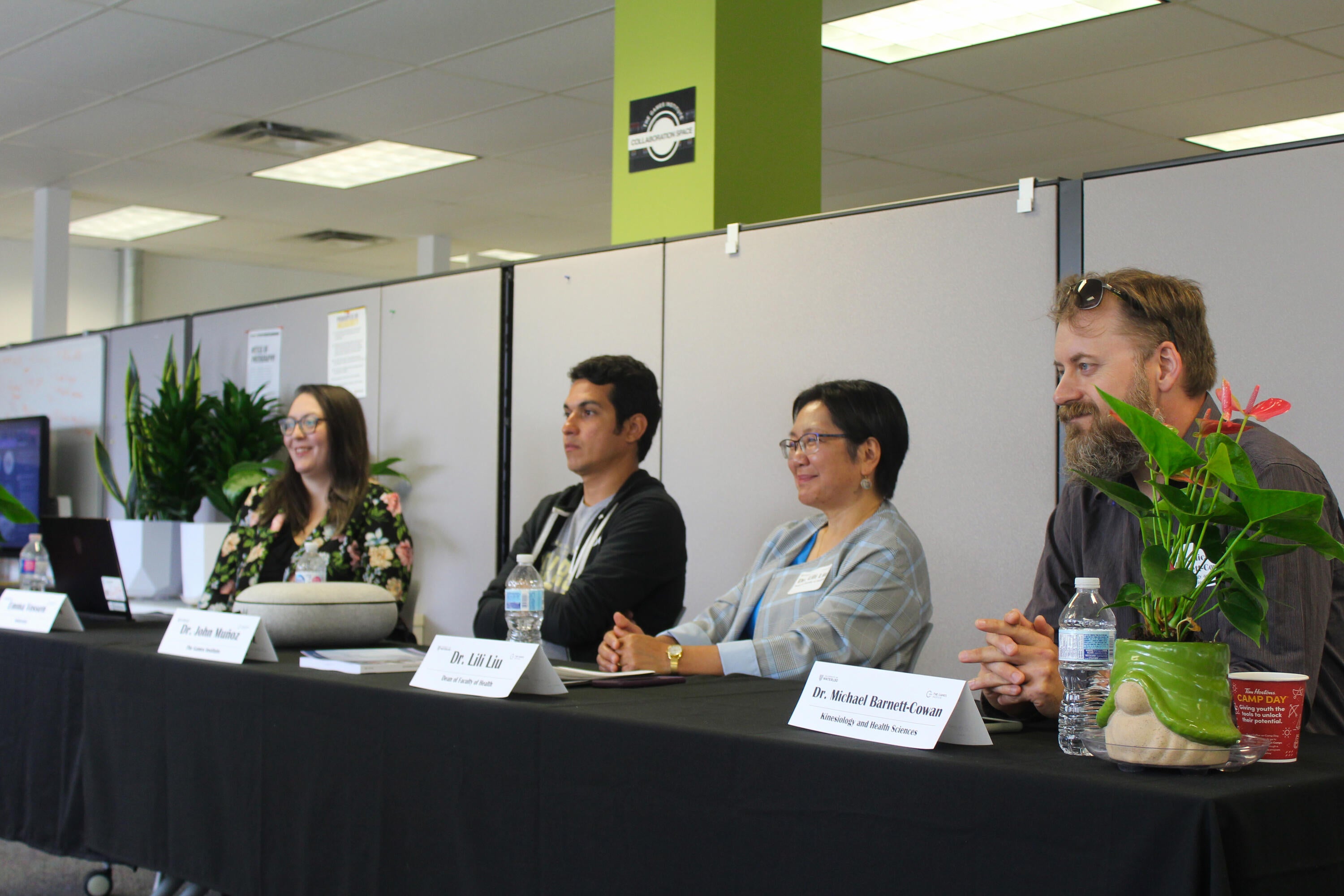
On July 5th, Drs. Lili Liu (School of Public Health Sciences), John Muñoz (Systems Design Engineering), and Michael Barnett-Cowan (Kinesiology and Health Sciences) were brought together to share their knowledge and expertise on how games and interactive technologies are being used in the healthcare industry. The panel was hosted and moderated by the Games Institute’s Research Communications Officer Dr. Emma Vossen.
- Dr. John Muñoz recently completed a post-doctoral fellowship where he worked on the game Seas the Day, a VR exercise game for elderly adults.
- Dr. Lili Liu’s research focuses on wayfinding and disorientation for people living with dementia and learning how interactive technologies can be used to improve their quality of life, and help locate them when they go missing.
- Dr. Michael Barnett-Cowan is a neuroscientist who runs the Multisensory Brain and Cognition Lab. Currently, he’s researching how the older adult brain processes sensory communication using interactive technologies.
The first question asked the panelists how interactive technologies and/or games have improved the lives of the people they work with. Dr. Liu spoke about the benefits of removing the negative stigma associated with games as interactive technologies can enhance the work of rehab professionals and care partners. Dr. Muñoz explained that games can create social engagement and help elderly participants who are socially isolated to some level.
The conversation moved on to how interactive technologies benefit healthcare workers and caregivers. Dr. Liu mentioned how a whack-a-mole game was utilized for participants living with dementia and how the tests demonstrated that the negative effects of dementia actually declined when they were playing the game, demonstrating the potential benefits of interactive technologies. Dr. Barnett-Cowan built on this story explaining how in the past, research conducted on how gaming can improve cognition didn’t show much, but now the data shows that interactive technologies can engage people who have previously been disengaged in rehabilitation. Dr. Muñoz sees this technology as an essential means of empowering practitioners but feels that there is a disconnect between those building the technology and the healthcare practitioners themselves, something that he has attempted to address in his work.

The panelists then discussed the limitations of the way the general public thinks about games and interactive technologies. For example, the association between games and an unhealthy lifestyle, addiction, or people simply seeing them as a “waste of time.”
Lastly, Dr. Vossen asked the panelists “What technologies do you imagine will be cutting-edge in health in the next twenty years?” Dr. Barnett-Cowan thinks that there is great potential for health metrics to inform our habits, and that AI technologies will become more popular in the next few years. Lili would like to see the adoption of these measures catching up to the technologies themselves. For example, she discussed the importance of accessible internet and wireless technologies in rural areas, especially Indigenous reserves. Dr. Muñoz would like to see more technologies that allow people to connect remotely to one another as well as more games that are created for older adults as opposed to young adults and children.
To watch the entire panel discussion, check out the recording on YouTube.